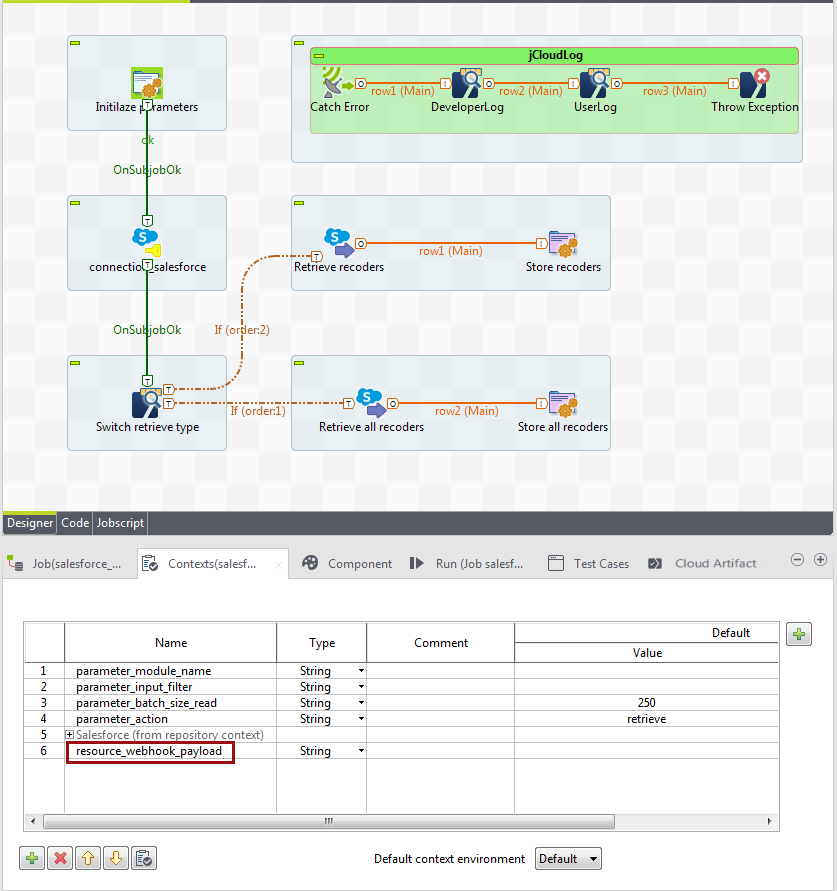Defining a Webhook parameter in Talend Studio
You can define a webhook context parameter in a Job to allow the
web user to generate unique URLs of tasks from Talend Management Console. These URLs allow external applications (Salesforce, Box, Dropbox
and so on) to trigger the execution of a task on any data change.
Before you begin
-
The Job is open in the Studio and the Contexts tab below the design workspace is selected.
About this task
As an example, we have a Job that retrieves contacts from Salesforce. We want to trigger the execution of the task every time the Salesforce contacts are updated.
Procedure
Did this page help you?
If you find any issues with this page or its content – a typo, a missing step, or a technical error – let us know how we can improve!

